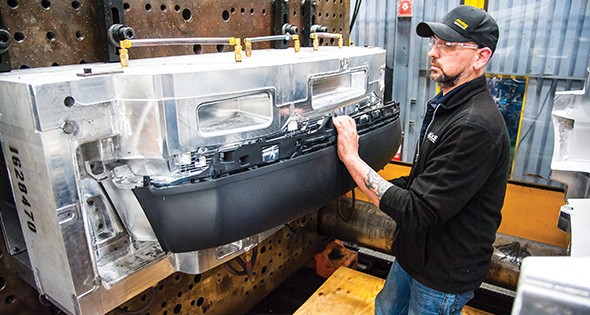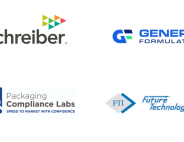
Addressing the Future of Automation in Today’s Workforce
15 Nov, 2019
Josh Hundt, Executive Vice President & Chief Business Development Officer, Michigan Economic Development Corporation
The global marketplace is continuing to evolve through automation, requiring businesses and workforce alike to remain flexible in this ever-changing economic environment. As the demand for high-tech engineering and manufacturing talent continues to grow, strengthening Michigan’s talent pipeline has been a top priority.
Thankfully, Michigan is already home to the highest concentration of engineering talent in the nation. And in 2019, our state was recognized for the strength of its workforce, being ranked in Business Facilities’ top 10 lists for our manufacturing, IT and cybersecurity talent, in addition to being recognized as first in the nation for our continued automotive manufacturing expertise.
Yet, as the Fourth Industrial Revolution emerges and technology is able to execute basic functions, there is no denying that certain job tasks across all these industries will become automated, meaning Michigan must be strategic in preparing its workforce to adapt. According to the World Economic Forum, 65 percent of children entering primary school today will ultimately end up working in completely new fields that do not currently exist.
That is why Michigan is taking proactive steps today to fill this skills gap and help workers compete in the future job market. Through programs like the MI Opportunity Scholarship, qualified high school graduates can receive two years of debt-free community college or two years of tuition assistance at non-profit, four-year schools. For adults, there is also the MI Reconnect program – a workforce development initiative that will create a tuition-free pathway for Michigan residents to receive in-demand industry certificates or associate degrees.
Michigan is proud to be home to nationally ranked universities and a strong community college ecosystem that is helping train today’s young people for future opportunities. In 2017, Michigan’s 129 regional institutions provided more than 28,000 STEM degrees, including more than 16,000 bachelor’s degrees, more than 6,000 graduate degrees, and more than 1,000 doctorate degrees. Michigan placed in the top 10 nationwide for the number of STEM degrees completed each year, highlighting our commitment to preparing the next generation of high-tech talent.
Along with higher education comes a need to ensure young people and working adults can access training and workforce development tools needed to support future in-demand skills. This is strengthened by the feedback MEDC receives from companies that are considering locating or expanding in Michigan, which consistently cite access to talent as their greatest concern. Already, Governor Gretchen Whitmer has made this a top priority for her administration, laying out statewide goals to increase the number of Michiganders with a post-secondary credential to 60 percent by 2030, strengthening the state’s current talent pool and giving companies the confidence that the talent they need is available here in Michigan.
With a strong economy and business climate in Michigan, now is the time to invest in our talent to help us become more competitive in attracting businesses and building the infrastructure needed to create more equitable opportunities in all corners of the state.
Related Posts
-

IONNA, LLC, to Invest $10M in Global Headquarters in Durham, North Carolina, Creating 203 Jobs
-

Construction, Manufacturing and Fabrication Innovator RNGD Invests $25 Million to Expand Southeast Louisiana Operations, Create 130 Direct New Jobs
-

Novo Nordisk to Expand Johnston County, NC Operations with $4.1B Investment, Creating 1,000 New Jobs
-

Gov Kemp: Food Solutions Company Cargill to Create 400 New Jobs in Metro Atlanta Office Hub
-

RoyOMartin Announces $30 Million Modernization of Timber Manufacturing Facility in Southwest Louisiana
-

Four Business Expansions Bring 144 Jobs to Kent, Bay Counties
-

Sodexo Opens Its New North American Headquarters
-

FUJIFILM Diosynth Invests $1.2B in Holly Springs, North Carolina, Manufacturing Facility, Creating 680 New Jobs
-

Eastman’s second U.S. molecular recycling facility will be in Longview, Texas
-

Wisk and the City of Sugar Land, Texas, Partner to Bring Autonomous Air Taxis to the Greater Houston Region









